‘The joy he was experiencing was infectious’
Brann Dailor, drums/vocals, Mastodon
My introduction to Sabbath was my mom’s band, who used to cover War Pigs – a pretty faithful rendition! But Ozzy felt more like my discovery, in 1981 or so. I was six years old, a neighbour had Blizzard of Ozz and I would just would stare at that album cover. I fell in love. The Randy Rhoads guitar solos, and then you would see footage of Ozzy and he looked as if he was having the time of his life up there. For a kid, he almost seemed like a cartoon character; the joy he was experiencing was infectious, but also the music was visceral. He became my favourite musician. I had a boombox next to my bed with the Tribute live album on at a low volume so nobody in the house would wake up, and I’d go to sleep to Ozzy every night.
There’s something about his vocal phrasing, a timbre that’s so perfectly matched with the music that’s playing underneath. He had the ability to emote and tell a story and draw you in, and the melodies he chose were really special. I don’t think he got enough credit as a singer – to the layperson he was this madman, and to them, the magic lay there and not in his abilities. But the way he sang was so unique and powerful. It’s so ingrained in my mind that when I listen back to stuff that I’ve done in Mastodon, when I sing, I can tell that it’s so heavily influenced by him. I like big, heavy riffs with an almost evil-sounding, dark, high-pitched vocal tonality: that’s Ozzy to a T.
I met him at Ozzfest in 2005: I had got a Randy Rhoads [tribute] drum kit made, and he, Sharon and Zakk Wylde came over in a golf cart to look at it. But I usually kept my distance just because I’m such a huge fan and didn’t want to get in the way.
Then Mastodon got to play Back to the Beginning [Ozzy and Black Sabbath’s farewell concert on 5 July]. Some icons of music, they didn’t know when it was their last show – take Prince, for instance. And so it was really, really special [for them to perform a definitive final show]. Mastodon were on first and I was unsure if it was going to be just a couple of people in the crowd when we played. But we were driving to the stadium, passing all the pubs, and they were filled with people and you could hear Sabbath blasting out of them at 9.30am. And then we got there and all the bands, from Metallica to Slayer to Anthrax, are at the side of the stage, they want to see us do our thing. It was this really palpable energy, this big feeling of love for Black Sabbath, to honour them the proper way.
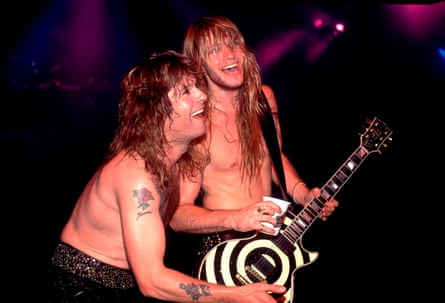
But then you knew that the big moment was looming: Ozzy’s gonna play. This is the last time you’re gonna hear Crazy Train. [Dailor begins crying.] Mr Crowley, the beginning, the organ, it was so powerful. Everybody was crying. It was just like, oh my God, this is the last time we’re going to see this. Then Tony’s guitar, Geezer’s bass – he was ripping, it was insane – and Bill’s drums. Those four super-special guys doing their thing. The gravity of the moment hit everybody at the same time, that this is it. It was a beautiful moment to be in.
Sabbath were so influential because they were so riff-centric, and that just really didn’t exist before. You had some bands that were close to it – but nobody really took that leap into the sound of horror. Like with Led Zeppelin, it got kind of dark; with Deep Purple, there were some moments. Something was swirling around in the air – but Black Sabbath realised it. They knew people were lining up to go and see these scary movies, these Hammer films, and they wanted to get scared. They knew that could be a real wealth of inspiration, to really tap into this darkness that exists out there and inside of everyone, but also in a playful way.
That darkness that you chase, that thing that resonates inside of you, it’s the devil’s chord – it just makes you feel something. If we’re composing something [in Mastodon], and it’s not evil enough, I’d rather it be more evil, please; we need to find different notes because this sounds too happy and I don’t like that. I love being happy, but the darkness makes me happier, somehow. Like Ozzy, I grew up in an industrial area – Rochester, New York – and it’s not all sunshine and happiness and roses. That’s not what’s happening in real life. And if you’re writing about sunshine and rainbows all the time, you’re kidding yourself. [Heavy metal] helps to try to unpack it and understand why some of the terrible things happen in the world, and it helps you get through it.
‘I adored how much he loved the Beatles’
Sam Carter, vocals, Architects
Ozzy Osbourne was such a beautiful soul. He basically created metal as a genre, and we’re all so grateful to him for that. I also adored how much he loved the Beatles – as a Beatles superfan myself, I always used him as proof that without the Beatles, there would be no Sabbath and no Ozzy.
He gave people like me the belief that I could become a touring musician, too. He showed us that if you care enough and work hard enough, you can make it – and you can do it without being a dickhead, but with a smile on your face. I will always be grateful to have had him as an idol.
‘They call him the Prince of Darkness, but maybe he’s a bit bigger than that now’
Lita Ford, guitar, the Runaways
The first concert I ever saw in my life was Black Sabbath at the Long Beach Arena in California, in 1971, when I was 12. The place was packed, just unlike anything I had ever seen. The guys in the band had this long thick black hair – you couldn’t even see them for all the blackness, though you could see these big gold crosses that they would wear. Along with the music and the power that was coming off the stage, they were the coolest thing ever. It absolutely carved my future out for me. I thought: I want to make people feel like these guys are making me feel right now.
I had already been playing guitar for two years, but I started to live and breathe it. When I turned 14, I hitchhiked across California to go to the California Jam [festival]. The last thing you need to be doing as a young girl is hitchhiking, but I had to go. I was able to work my way into a hole through the fence, next thing I know I’m right in front of the stage. Black Sabbath, Deep Purple, Emerson, Lake & Palmer … A lot of the things you hear Ozzy sing are not easy, but some of the high notes, he seemed to hit them effortlessly. His voice has so much character, it’s haunting, almost a cry.
And then I ended up having a hit solo single with him in 1988. Sharon Osbourne was my manager and she came by the studio I was recording in, in North Hollywood, with Ozzy. Ozzy and I went into a little side room and just started pinging ideas back and forth. Nothing was pre-recorded; he didn’t have a title, I didn’t have a riff. We were in there all night, because when we came out of that room, the sun was coming up. That was Close My Eyes Forever: magic was created in that room, and who would have thought it would have been such a huge song [reaching No 8 in the US charts].
With Sharon being my manager, Ozzy was always there. They were crazy. The stuff they did to each other – it wasn’t like any other relationship I’ve ever known. They were perfect for each other, that’s for sure, because he could dish it out and she could dish it out even bigger. She and Ozzy would play games with each other to let the other know they’ve pissed them off. You’d walk through a hotel and you’d see a pair of shoes out in the hallway, and you’d think: I wonder why Ozzy’s shoes are there? Well, Sharon had had enough of him, and she’d crapped in his shoes. And then of course he would crap in her shoes at a later date. He’d get her back.
They came to my parents’ house one day for Easter dinner, and my mom had roasted a leg of lamb. Sharon and Ozzy come in, and Ozzy chugs a bottle of wine. He doesn’t drink the wine in a glass, he just drinks it out of the bottle, like it’s the last little bit of fluid he’s ever going to taste. And he starts sinking lower and lower into the chair until the wine’s gone. And then my father asks Ozzy to cut the lamb. Ozzy starts, but it slips off the plate and goes underneath the table. Ozzy says: “I’m sorry, I don’t eat meat!” My dad laughed his ass off.
He’s the biggest, greatest rock star in the world. Right up to everything he did in the past month, doing the concert. Whether he could stand up and walk or not, he still delivered the songs, and the band killed it. I hate to say it, but it’s kind of the way to go: like a king. They call him the Prince of Darkness, but maybe he’s a bit bigger than that now.
‘It’s absolutely disarming, the way he’s delivering his truth’
Joe Duplantier, vocals/guitar, Gojira
The way he departed this world was absolutely magnificent. Raising all that money for charity with Back to the Beginning, bringing the whole scene together like this – and then he’s gone. It is very sad and at the same time, so perfect in a way.
Back to the Beginning was like taking a picture of what the metal scene is. Of course Iron Maiden weren’t around; a lot of English bands were missing. But Slayer, Metallica, Pantera, Anthrax … all these people that mean so much. We’ve played thousands of shows, had so many important shows, but this one takes the cake. It is way more powerful than even the Olympic Games performance that we did last year. There was no competition involved like in the Olympics – this was art, spirituality, emotions. And everybody knew they were seeing Ozzy for the last time. I cried.
There’s a purity to the lyrics he sings, and to his attitude. It’s absolutely disarming, the way he’s delivering his truth and saying that he’s going to do whatever he wants to do. The world is yours – you just have to decide it. The song Under the Sun that we covered at Back to the Beginning was very much like that, and I’m pretty sure he influenced a lot of the punk and thrash scenes with that speech, which is basically: fuck you, I’m going to be myself. It’s so basic, but so needed in our societies. Whenever [Gojira] talk about environment or equality between people or doing the right thing, it’s with this attitude, an attitude that is typical Ozzy.
Before we knew he had died we were playing a show in Istanbul. It’s almost impossible to catch us playing a cover version – we’re proud like that, we’re French, we want to do our thing. But that day in Istanbul, we had decided to play Under the Sun. During the show, one of the fans in the front row put “Rest In Peace Ozzy” on his phone and held it up to me. That’s how I learned that Ozzy died. I checked with my tour manager on the side of the stage and they confirmed it. So I went to the microphone and told 9,000 people the news. Everybody stayed completely silent. The whole show shifted to a very deep tone. And at the end, we played the cover and there was a lot of emotion and a lot of people crying. It’s beyond words what I felt: one of the most epic moments in my life. I have children, I witnessed their birth, that would be number one for sure. But being on stage and playing a Black Sabbath song with everybody as one … in the lyrics he says: “I don’t want no one to tell me where I’m gonna go when I die.” I believe in a sort-of afterlife, and I was imagining him on his way there as I was singing that line.
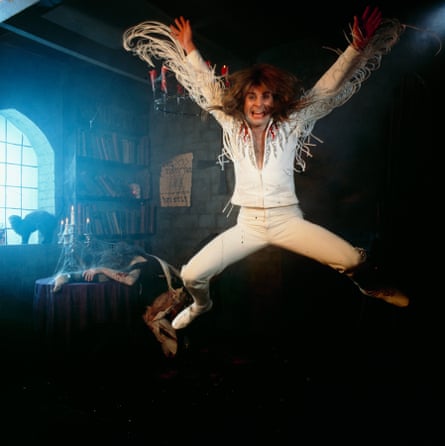
At Back to the Beginning, it was amazing to see people being so supportive of this guy and this lifestyle and whatever it generates and communicates. There’s something in this genre that brings people together and gives hope. It’s a secret code: I see a metalhead in Japan or Turkey or Greece and we just know: we’re rooting for truth and we’re rooting for power. But the good power, the power that you find in a volcano or in a wave. And pointing at things that society won’t look at, but metal does. Metal talks about pain, suffering, blood, and death: the one thing we all have in common. It’s not a political party, it’s not a religion, it’s this thing that we share, and we think more people should join and share that.
‘I was in a room with him just 10 days ago’
Randy Blythe, vocals, Lamb of God
The guys in Sabbath didn’t walk around saying: we created heavy metal. But those of us who play music in this genre pretty universally point to Black Sabbath as the first metal band. We had toured with the original lineup before, we toured with Ozzy before, and we were very cognisant of the fact that we were invited to play with the creators. So getting to play their final show was just a tremendous honour and pretty overwhelming for all the band.
His death is a very odd thing because all of us are still very much on a high from the concert, and I was in a room with him just 10 days ago, at Comic-Con, his last public appearance. He was really full of life and happiness over the whole Back to the Beginning thing. I was thanking him for the show, for having Lamb of God, and I’m like: “Oh, we went by 154 Lodge Road.” Because me and my lady and Ozzy’s agent went to see Ozzy’s childhood home: a tiny little terrace house in Aston. I told Ozzy and he gave me a big smile: “I bet that fucking guy who lives there is sick of hearing about me!” And he just busted out laughing. He was in a really good mood; he went out on a high note. His death is very sad, but my heart is full, because I got to witness him say goodbye to his fans. He said it a few years ago: if I can just play one more show and drop dead at the end, I’ll die as a happy man. So he got to do that.
In 2012, I was in prison in Prague [Blythe was charged with manslaughter after a Lamb of God fan died from a fall off stage, and he was later acquitted]. I had paid bail, over $200,000. But the prosecuting attorney apparently did not like the fact that I had been given bail, he made some sort of objection, and I wasn’t released. So Ozzy and Sharon both said things via social media in support of me, but more importantly, they wrote a letter to the judge attesting to my character and offering to throw an Ozzfest concert in Prague, the proceeds from which would go to any desired charity. They didn’t ask them to find me not guilty, they just wanted them to honour my bail. It’s not cheap to put on an Ozzfest, so the fact that they were willing to do that, and stick up for a member of their extended musical family, speaks volumes to their character.
When I was in prison, I didn’t have access to English newspapers or the internet. I came out into the prison yard one day, and all these dudes came up to me, speaking in broken English, very excited and impressed. “Ozzy Osbourne says good things for you.” When you’re in a foreign prison, and people are stoked that Ozzy is speaking up for you, it makes a difference. I’ll always be grateful for that.
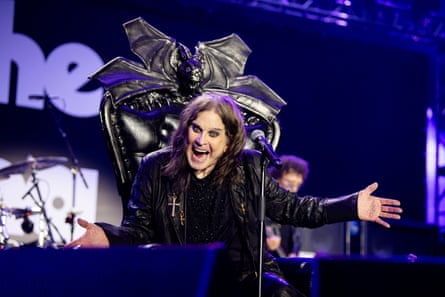
Ozzy was not a pitch-perfect singer. He was not some Auto-Tuned product; there was a great humanity to his voice. The most important thing is his voice was singular, and a bit unhinged. A couple of times I’ve even confused a Led Zeppelin song with someone else because the vocals were similar enough. That has never, ever happened with any Ozzy song.
‘Sabbath and Ozzy were a lesson in being yourself at all costs’
Lzzy Hale, vocals/guitar, Halestorm
I remember a very early conversation with my parents about the difference between the music that you might hear at the grocery store where it’s kind of meant to fade in the background and not really be noticed, and rock’n’roll, and specifically Black Sabbath, that is meant to stop you in your tracks. From a very early age, that was the kind of music that I was attracted to. There’s a rite of passage, specifically for a woman who is attracted to that type of music: I lost a lot of friends, but Sabbath and Ozzy were a lesson in being yourself at all costs. You’re not doing it to be well liked, but because it is essentially a part of who you are. So many of the mission statements for our songs go back to that foundation.
It’s actually been a shock to find out that he is mortal, because Ozzy was meant to live for ever. He’d survived so much in the business and been through drugs, alcohol, the quad bike accident [that nearly killed him in 2003] and illness, but he had so much love in his heart up till the end and was still hungry for it and doing it for the right reasons. When we played the Back to the Beginning final show, he was visibly frustrated that he couldn’t get out of the chair. There was a moment where it looked as if he was going to get up as if he was thinking: “Dude, I have wings.” Ultimately it’s about what we leave behind, how many many smiles we create and how much love we pass on, and what a wonderful man Ozzy was for all of that.
‘I was a little worse for wear but in comparison to the Sabbath guys I was an Olympic athlete’
Rick Wakeman, keyboards, Yes
Yes ended up supporting Sabbath on a big American tour, and I hit it off with them right from the beginning. We were drinkers and kindred spirits in that we loved the social aspect. I ended up – much to the disdain of the Yes guys – travelling with Ozzy, Tony, Bill and Geezer on their own plane, surrounded by beer crates. It was brilliant. Ozzy said: “We’ve got some Minimoog lines that need doing, will you come and do it?” That’s how I got to play on Sabbath Bloody Sabbath (1973).
Yes were recording in studio three at Morgan Studios in north London and they were in studio two over the road. When I went over at about one o’clock in the morning I was a little worse for wear but in comparison to the Sabbath guys I was an Olympic athlete. The word “comatose” comes to mind. The only person who was compos mentis was the tape op, who was sort of terrified. He set the track up and I played what I thought was OK. Ozzy opened his eyes, said: “Fucking brilliant!” then he closed his eyes again. I think I ended up crashing there as well. There was even talk of me defecting to Sabbath but someone said: “We’ll lose what we have,” because at the time metal bands were all guitars and didn’t have keyboard players. I said: “One day that will change,” and it did. My son Adam ended up playing [keyboards] with Ozzy for 20 years and when he joined he asked me what I’d played on Sabbath Bloody Sabbath. I said: “I can barely remember being there – can you let me know?”
Some years after that I played on Ozzy’s Ozzmosis album (1995), which is still one of my favourite albums to this day. It’s almost prog metal. I certainly think most prog bands would have been delighted to have written a track like Perry Mason. That time, in the studio he was a lot more on the ball and much more knowledgable about what he wanted than people give him credit for. He was very clever at being the caricature of himself that the media wanted when they wanted it, but when it came down to music, he was a bright boy.
I honestly think Sharon saved his life. I met them when they’d first got together on Ozzy’s first solo tour back in 1981 or something, which Sharon was production managing or something. I knew she was [the infamous music manager] Don Arden’s daughter and Ozzy said: “Rick, I can tell you because you’re a mate, but we’re an item.” I asked Sharon: “What does your dad think?” and she said: “He doesn’t know yet.” I wouldn’t want to have been in the room when they told him, but years later he said the only person that ever got one over on him was his daughter, because he’d taught her well. I’d never seen Ozzy so happy. Very few marriages don’t go through some sort of turmoil and theirs was very public, but they genuinely loved each other.
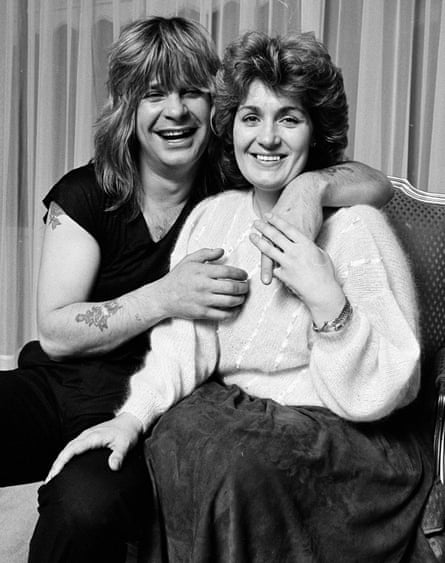
I feel honoured to have worked with him. Ozzy sang Buried Alive on my Return to the Centre of the Earth album (1999) and did a fantastic job on it. I had the London Symphony Orchestra and he just thought it was great fun. A journalist asked him what he thought of the track, Oz went: “Fucking brilliant,” and that was the end of the interview. Ozzy could be hilarious, but had so many different sides and one of his endearing qualities for me is that he did a lot of really good things for charities and such, but didn’t wave a flag about it. Sharon was the same. They just got on and did it, which is how it should be. I’m going to miss him a lot even though I didn’t see him that much, but in a strange way he’ll never go away. People will always keep telling stories about him and I think that’s the legacy he’d like to leave.
Scott Ian, guitar/lyrics, Anthrax
When Anthrax came together in the early 80s, we had all grown up with Sabbath – no Sabbath, no Anthrax. And then Ozzy comes out with these two genre-defining and -expanding solo records, with this new hot guitar player Randy Rhoads, and the riffs, the solos, the songs – it just oozed metal. Everything he did was such an influence on us.
I wouldn’t have even become a guitar player if it wasn’t for Sabbath. After taking guitar lessons for six months and being bored with my teacher trying to make me learn theory, all I wanted to do was listen to Sabbath and Zeppelin and learn how to play those songs. And so when he wouldn’t help me do that, I stopped lessons, and I would sit and listen to Sabbath records and learn the chords by ear. That’s literally how I learned how to play guitar.
Ozzy was right up at the top of our list of guys we wanted a singer to sound like. Most of our peers, they all had vocalists who were shouters or yellers: James Hetfield, Tom Araya, Dave Mustaine, Paul Baloff, you could even put Lemmy in that category. The vision we always had for Anthrax was we wanted a singer, more in the vein of someone like Ozzy or Bruce Dickinson or Rob Halford, a voice that could be really aggressive but also really melodic at the same time.
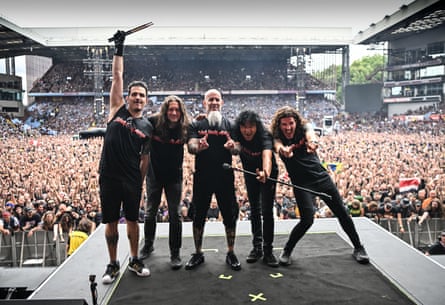
Sabbath’s lyrics, people think of witches and demons, but so much had to do with the horrors of war. They grew up in postwar Birmingham, one of the most bombed places in the country. They had front-row seats to that, the savagery of it. On that first Anthrax record I wrote lyrics for, Spreading the Disease, there are lyrics about war, about being a disenfranchised teenager and having to fight for everything you have, about organised religion, which was all in me from listening to Sabbath records. I saw that there was a bigger world than my mother’s apartment in Bayside, Queens, and Sabbath was one of those things that opened that door for me, along with Stephen King or Marvel Comics. It opened my mind and it helped me use my imagination.
Just so much of Sabbath still holds up, lyrically. They all saw, at a very young age, that the world was not a friendly place. And the powers that be are only in it for themselves. War Pigs: that song came out when Vietnam was still raging, but could it be more prescient now?
I met Ozzy in 1988 when he took Anthrax on tour in the US for two months. Every band that would open for Ozzy on these giant arena tours would then blow up in popularity – Mötley Crüe, Metallica, and it was the same for us. I’d say the deepest conversation I had with him was about AC/DC’s Bon Scott – it’s very rare to meet somebody who actually got to hang out with Bon. I said: what was he like? He thought about it for a second, and goes: “Now, Bon, he was a drinker.” Coming from Ozzy, that sets the bar pretty high.
We had a different experience than, say, seven years earlier when he was still the bat-biting, dove-head-ripper-offer. He would pop his head through the door of our dressing room backstage and go: “You alright, mates? You need anything? Don’t bother talking to the crew people, just come see me and I’ll take care of it.” And that was every day. His kids were running around backstage – the world was a different place for him at that point. It’s one of those amazing things that when you meet your hero and he’s better than you can hope for.
‘He’d order a quadruple brandy and neck it’
Mick Box, guitar, Uriah Heep
He always had top-notch players with him – he even had three members of Uriah Heep [Bob Daisley, Lee Kerslake and John Sinclair]. So, when we were recording our 1982 album Abominog in the Roundhouse studios, he was constantly popping down there and having a drink with us at the pub across the road. He’d order a quadruple brandy and I’d think: oh, it’s going to be one of them nights. He’d leave it there on the bar for quite a while, going on talking and joking, and then he’d just turn around and neck it. He said: “I hate the taste of it, I like what it does to me.” When you’re in his company, you’re always laughing; he’s just one of those characters. He did take the world quite seriously, on conspiracy theories and things like that at one point – but generally, there was just a funny side in everything.
I like his later stuff, like [his debut solo album] Blizzard of Ozz. It rocked the heavy metal world, knocked it on its breeches, because it was that good. Being fired from Sabbath, I guess there was a degree of floundering about, but when that lineup came together, it really did take him into the stratosphere.
If you’re looking at great [rock and metal] singers, you’d say Ronnie James Dio: a beautiful, creamy, lovely voice. But Ozzy had an equal to that in his own way: very powerful, and very recognisable, which is almost as important as anything else in music. There’ll never be another character like him. He was the godfather of everything, basically.

‘He reminded me of a hobbit – he had this beautiful whimsical side’
Eleanor Livingston, vocals/guitar, Die Spitz
My dad introduced me to Black Sabbath and Blizzard of Ozz when I was really young. I would run around in my underwear and listen to Crazy Train; Mr Crowley was my favourite Ozzy song when I was a kid. When I was 10 I saw him live at the Moody Amphitheater in Austin [Texas]. There was this giant bucket of water on stage and between songs he would dunk his head fully in and you’d see the water splash out. That image stayed with me.
When we started a band at the first show we ever did we played Paranoid, because it was the easiest one to play, but I’ve probably learned the riffs to at least 15 Sabbath songs. We were hugely influenced by Sabbath and in terms of performance, I always wanted that crazy fun attitude that Ozzy had. It always felt he wanted to create a world that people couldn’t be part of, but his soul was very gentle: he’d always say “God bless you” during shows and he was always talking about his children. He reminded me of a hobbit, and had this beautiful whimsical side. The biggest thing he taught me was that it’s OK to look how you want to and do your own thing, and not to doubt myself.
It surprises people that we make the music we do because we’re women, but I’m not going to present myself as a pretty, meek girl or whatever. He presented himself as a freak and as much as people hated him initially, he made that iconic. There was a video of ours that went kinda viral where I’m hopping like a frog, and then I rewatched this Sabbath show from Paris in the 70s and Ozzy was hopping like a frog and generally being insane, and I thought: “Ah, that’s where it came from.” He influenced my dad, then me and I’m sure if I ever have kids I’ll tell them about him. He truly was one of a kind.
‘There was a childlike playfulness that he carried on stage’
Matt Baty, vocals, Pigs Pigs Pigs Pigs Pigs Pigs Pigs
The blueprint for our band was heavily influenced by Sabbath, in the way that we wanted to tread that line between something quite heavy and serious-sounding, but counterpoint that with something celebratory and triumphant. And have music that people could, when it’s performed live, just completely enter into another world with. There’s amazing mental health benefits to that – like even just being a member of an audience going to see like a band that I love, if they can make me switch off for an hour and just kind of trample down all of those like horrible racing thoughts on a day-to-day basis, that’s magic.
I also like to add to balance out the doom with a bit of a bit more of a positive message, or at least the message of: we’re in this together. Even when you think about [Osbourne’s 1980 debut solo single] Crazy Train, there’s that line that I absolutely love: “Millions of people living as foes but maybe it’s not too late to learn how to love and forget how to hate”. How beautiful is that? And it’s in a metal song.
I’ve thought about that final performance quite a bit in the past couple of weeks because one of the things that struck me about Ozzy was even though he was sat down, he was still commanding the stage. You would hear a huge cheer from the audience just via him pulling particular faces. The greatest performers are the ones that can express themselves emotionally in a genuine way like that. As soon as things kind of become huge productions in huge arenas, performances can become, well, performative. Whereas Ozzy, he always felt genuine; there was a childlike playfulness that he carried on stage that was very endearing.
There’s a live in Paris video from 1970, and I absolutely love that performance – he’s out of this world as a vocalist on that. And then California Jam, 1974, it’s incredible. It looks as if they’re playing in front of like a million people. They play Children of the Grave and there’s a dichotomy to it – it’s called Children of the Grave, right? But it’s a really celebratory and uplifting song. I’ve just put it on now: Ozzy’s wearing some gorgeous tassels.
His singing is just so expressive – especially in that the earlier Sabbath catalogue, there’s no tricks to it, like straight-up blues singing, in a way. Incredibly emotive and quite raw. Rock and metal today, I find quite a lot of it quite formulaic sometimes, both the performance and the production of it. It loses a lot of character – and you could never really throw that accusation at Ozzy.
The catalogue’s there; Ozzy and Sabbath are never going to be forgotten. And they’ll keep inspiring future generations of musicians to pick up a guitar or microphone and express themselves. One of the important things was they were always very open about their background as well: they came from nothing. Today there’s not a lot of hope for people in certain areas of the country, and you don’t see a lot of breakthrough artists that are truly working class – that’s a shame. Access to instruments, lessons, rehearsal spaces and the affordability of all of those things; even a pair of drumsticks now is about 15 quid. But I hope that there are kids that could look at a band like Sabbath and think: “Well, they just did it. They just got together and did it.”

 1 day ago
4
1 day ago
4



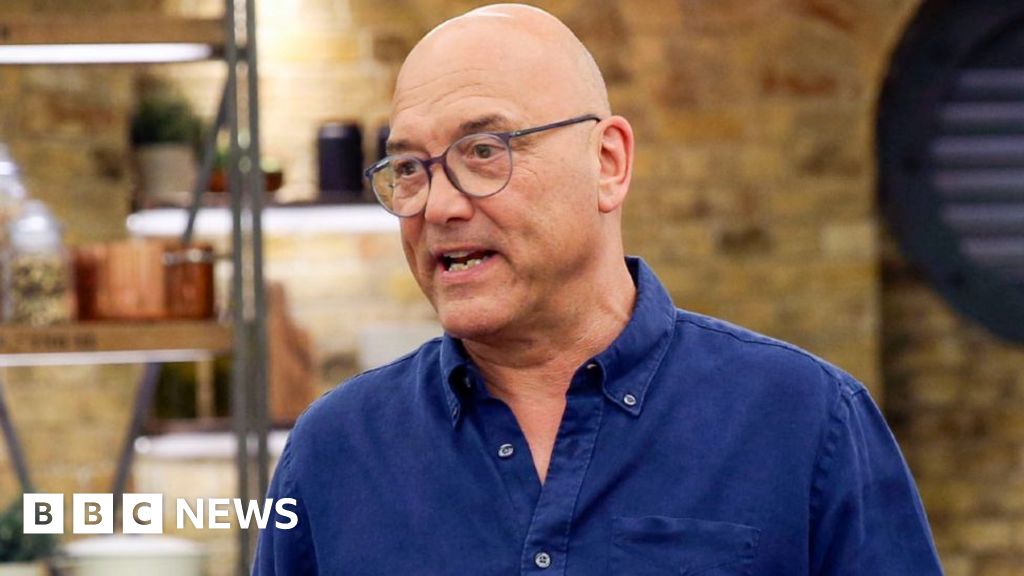

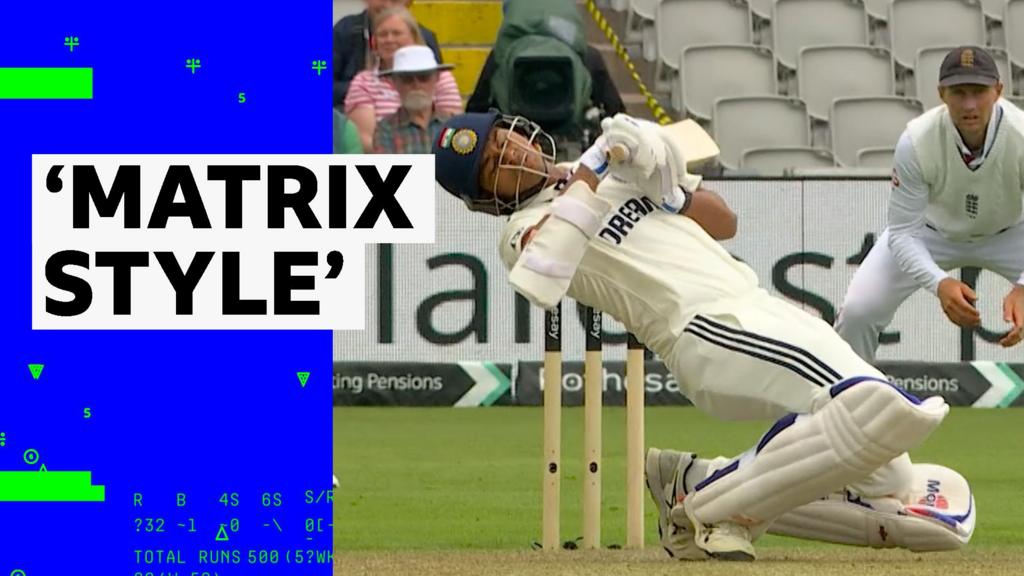
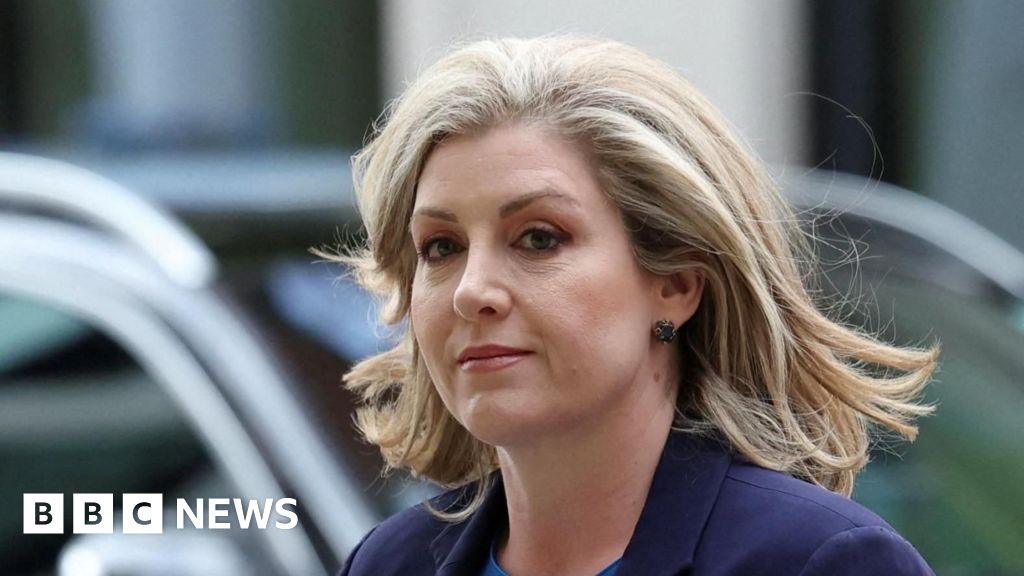
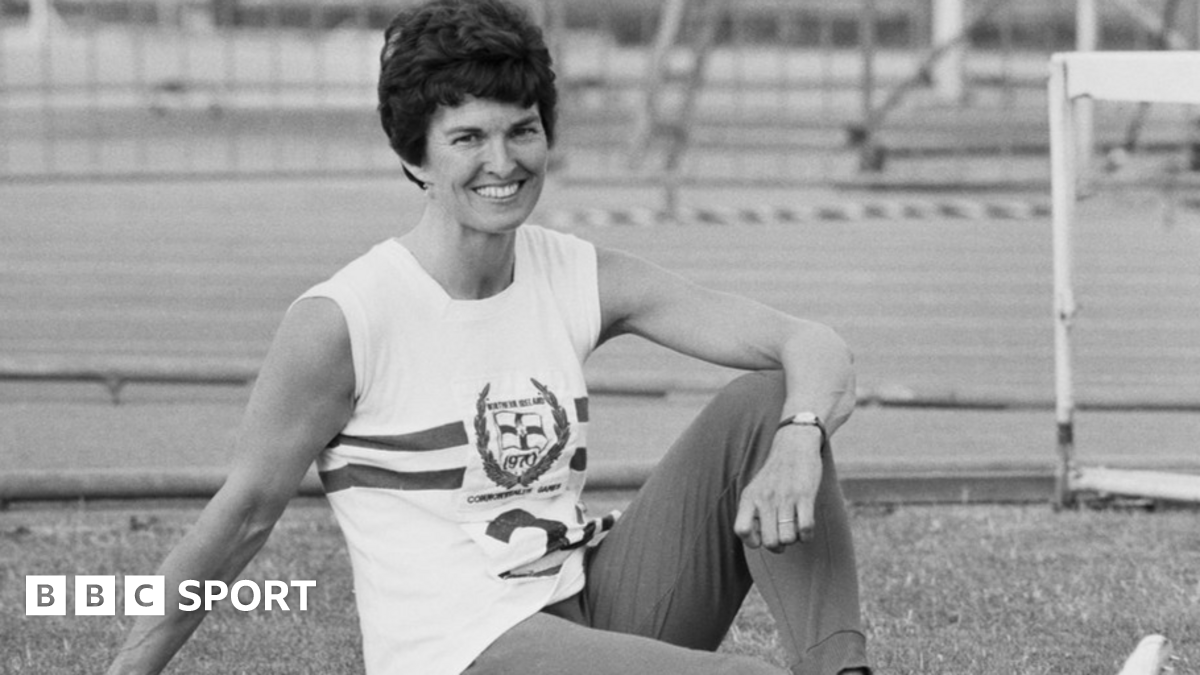
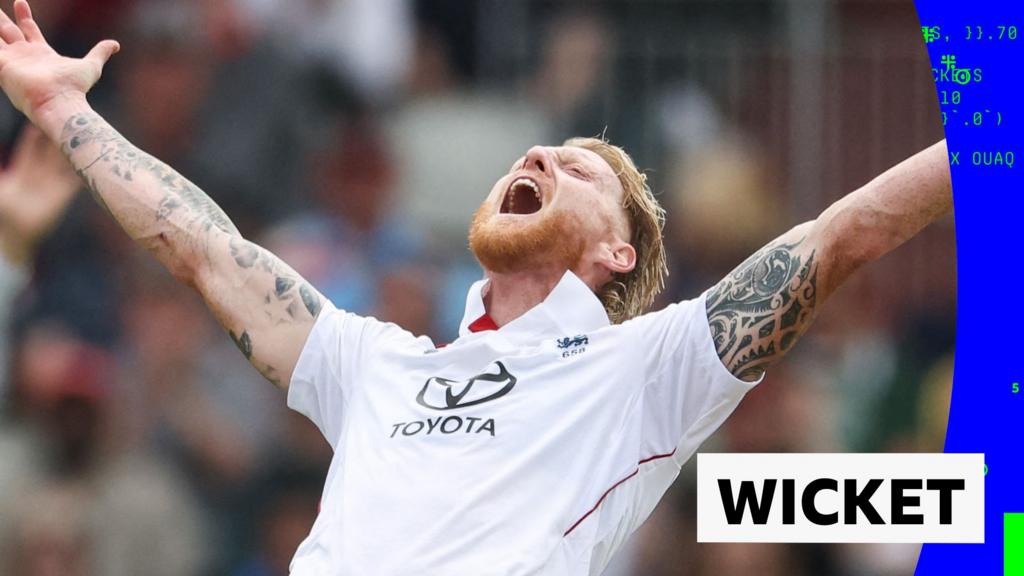
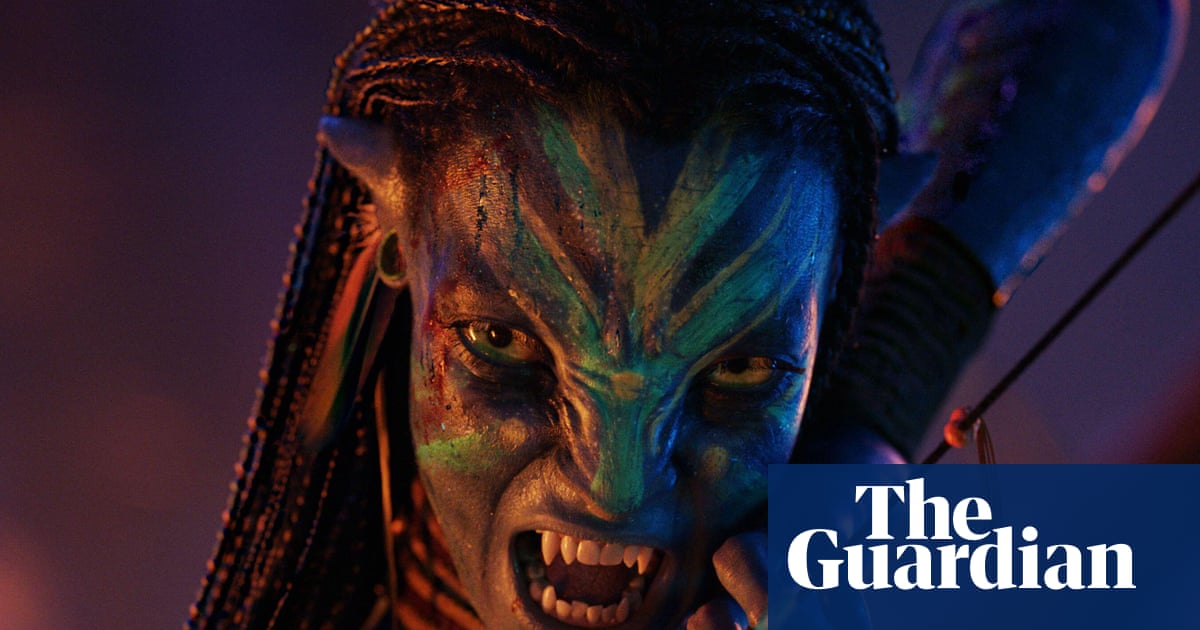
 English (US)
English (US)